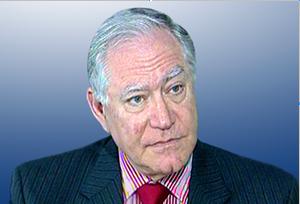 The Lebanese cabinet agreed to ask Justice Minister Ibrahim Najjar to follow up with his Syrian counterpart on the issue of the arrest warrants issued by the Syrian judiciary in former General Security chief Jamil as-Sayyed’s lawsuit, Information Minister Tarek Mitri told reporters following Monday’s cabinet session at the Baabda palace.
The Lebanese cabinet agreed to ask Justice Minister Ibrahim Najjar to follow up with his Syrian counterpart on the issue of the arrest warrants issued by the Syrian judiciary in former General Security chief Jamil as-Sayyed’s lawsuit, Information Minister Tarek Mitri told reporters following Monday’s cabinet session at the Baabda palace.
He added that the cabinet also affirmed its commitment to strengthening Syrian-Lebanese relations.
Mitri added that the cabinet also asked Najjar to distribute copies of his report on false witnesses so the issue could be discussed in a future cabinet session. On August 18 the cabinet delegated Najjar to prepare a report on false testimonies in the international investigation into the Rafik Hariri murder.
President Michel Suleiman said that he had hoped Syria would not issue the warrants, especially since the government had asked Najjar to follow up on the false witnesses issue, the information minister added.
Mitri also quoted the president as saying the issue of the arrest warrants should be handled judicially, and not politically.
On Sunday the Syrian judiciary issued 33 arrest warrants for judges, officers, politicians and journalists of Lebanese, Arab and other nationalities in the case brought by former Lebanese General Security chief Jamil as-Sayyed, according to a statement from Sayyed’s office.
Sayyed along with 3 other generals was detained from 2005 to 2009 on suspicion of involvement in former PM Rafik Hariri’s murder. In April 2009, the Special Tribunal for Lebanon (STL ) ordered their release without charges due to insufficient evidence. STL prosecutor made it clear at the time they were set free that their release did not mean they are Innocent and that once more evidence is available they could be back in jail.
In December 2009, Sayyed filed a lawsuit in Damascus against various defendants whom he alleges were involved in a conspiracy of false testimonies against him
Prime Minister Saad Hariri warned against political escalation and said he is working to build better ties with Syria, Mitri said.
The information minister added that Hariri expressed his regret over the warrants and told the ministers that he had hoped the development of Lebanese-Syrian relations would prevent such events.
The Lebanese authorities have not yet been formally notified of the arrest warrants and neither have the people named in them, Mitri also said.
Wrong timing
Arrest warrants issued by Syria in former General Security chief Jamil as-Sayyed’s case reflect a flaw in Lebanese-Syrian relations, March 14 MP Okab Sakr told New TV on Monday.
He added that they come at the wrong time.
“Just as we accepted what the Syrian judiciary did and are dealing with it judicially, others must accept the steps of the international judiciary without intimidation or threats,” Sakr also said.
The warrants will “not go on this way” and there will be an official Lebanese response to them on the basis of “respect for the constitution and institutions in order to develop Lebanese-Lebanese and Lebanese-Syrian relations,” he added.
Is Hariri next ?
Prime Minister Saad Hariri could eventually be among those named in arrest warrants issued from the Syrian judiciary, former General Security chief Jamil as-Sayyed told New TV on Monday.
“Perhaps during the investigation, [Internal Security Forces (ISF)] Information Branch head Wissam al-Hassan or Attorney General Said Mirza [will] say that he undertook the matter of false witnesses to fulfill Hariri’s wish. At that [point], [Hariri] could be included in the warrants,” Sayyed said.
“The matter of false witnesses, in my personal belief, is managed by Hariri personally through his institutions, his media, and his wealth,” Sayyed told the TV station.
Those named in the arrest warrants are “considered by the Syrian judiciary to be fugitives from justice” and “after today, the Syrian judiciary has the right to detain the suspects at any place and time,” he also said.
Many political observers consider the Syrian action as a reward to Sayyed for shifting the blame over the assassination of Lebanon’s former PM from Syria to Hezbollah.

Leave a Reply
You must be logged in to post a comment.